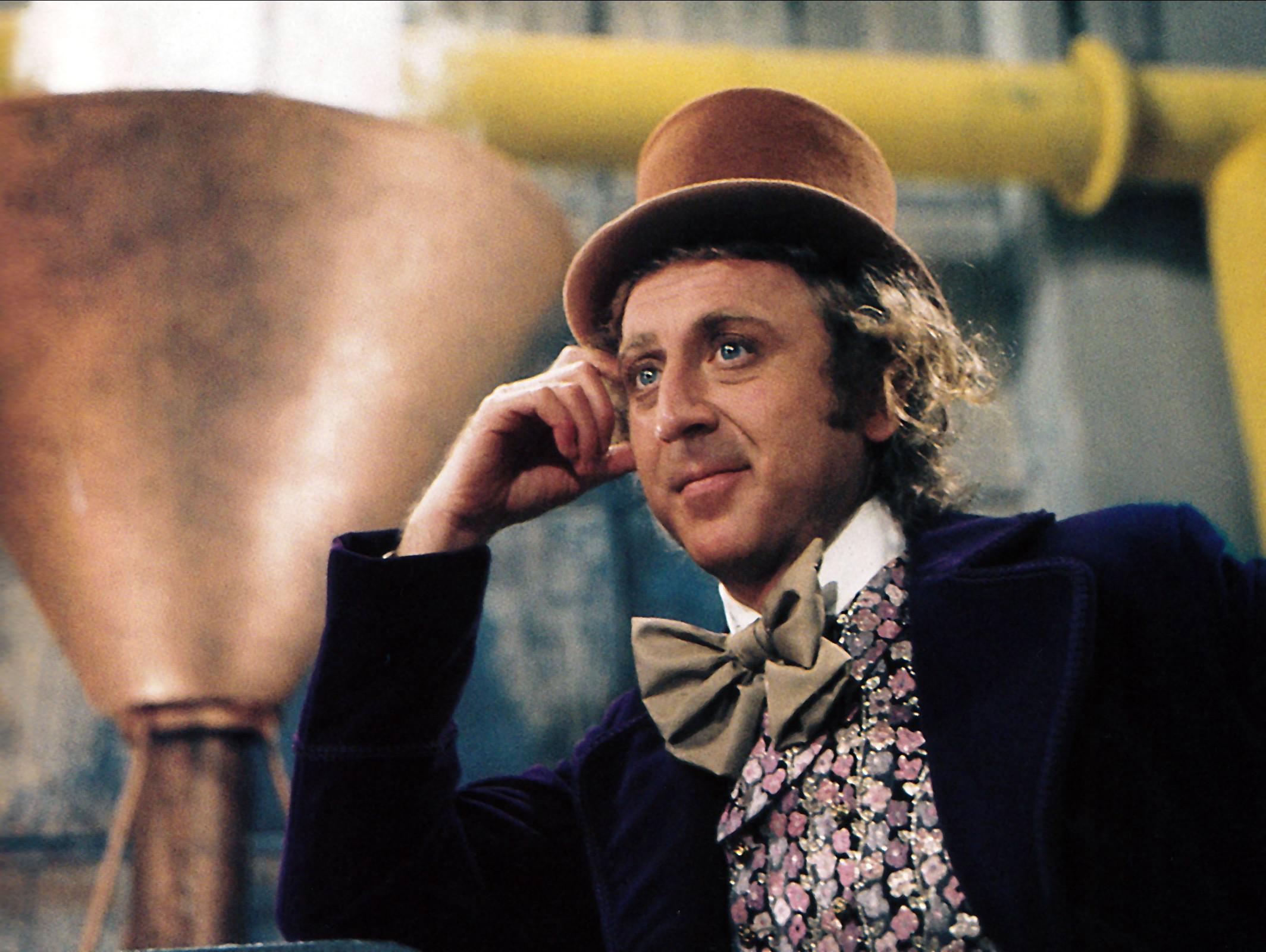The chaotic brilliance of Gene Wilder
Remembering one of American cinema's most prodigious comedic talents


A free daily email with the biggest news stories of the day – and the best features from TheWeek.com
You are now subscribed
Your newsletter sign-up was successful
In the 1964 children's book Charlie and the Chocolate Factory, we meet Mr. Willy Wonka, the enigmatic proprietor of the "largest and most famous" chocolate factory in the world, like this:
"Mr. Wonka was standing all alone just inside the open gates of the factory. And what an extraordinary little man he was!"
This "extraordinary little man" is not the Wonka who greets us in Mel Stuart's 1971 film Willy Wonka and the Chocolate Factory. That man is a duplicitous impresario. He staggers towards the gate, towards the crowd, as if feeble, taking a fall and immediately rolling up erect as an exclamation point, with arms extended for applause, which, of course, he gets. Roald Dahl, the macabre adult-oriented author-turned-beloved children's writer, may have created Wonka, but our enduring image of Wonka, garbed in purple, with that sweet, sanguine voice intoning bizarre musings, belongs to American actor Gene Wilder.
The Week
Escape your echo chamber. Get the facts behind the news, plus analysis from multiple perspectives.

Sign up for The Week's Free Newsletters
From our morning news briefing to a weekly Good News Newsletter, get the best of The Week delivered directly to your inbox.
From our morning news briefing to a weekly Good News Newsletter, get the best of The Week delivered directly to your inbox.
Wilder, who died Monday at the age of 83 due to complications from Alzheimer's disease, was one of American cinema's most prodigious comedic talents. His best performances permeate pop-culture so thoroughly, it's easy to forget that his most renowned works came out in a brief seven-year period between 1967 and 1974. During this time he worked with Mel Brooks on three classics (The Producers, Blazing Saddles, and Young Frankenstein), each of which remains an epochal evocation of American comedy during New Hollywood.
He was diagnosed with non-Hodgkin's lymphoma in 1989, the same year his wife, Gilda Radner, died of ovarian cancer; despondent, he took a nine-year respite starting in 1991, finally retiring permanently from film in 1999. He won an Emmy for his guest appearance on Will & Grace in 2003, his last on-screen performance.
But let's go back to the beginning. Wilder's debut performance, a brief bit as a wise-cracking, possibly deranged hostage in Bonnie and Clyde, remains one of American film's great cameos. For his one scene, Wilder hijacks the film the way Warren Beatty and Faye Dunaway hijack his car. You can already see his brilliance, the genteel sweetness vacillating with contemplated mania, when he yells, "Step on it, Velma! Step on it, Velma!"
The next year, in The Producers, as he sits on a boat beside the conniving and coquettish Zero Mostel (how often does one get to say that?), he intones, "I feel so strange." Then, hands squeezing his face, as if trying to hold in his sanity, he cackles, "Well, whatta ya know about that? I'm happy! I'm happy!" The shift from modest and shy to wild laughter makes him sound like a Warner Bros. cartoon incarnate.
A free daily email with the biggest news stories of the day – and the best features from TheWeek.com
At the height of his comedic prowess, Wilder had unparalleled control of timing and delivery. His best characterizations comprised conflicts, mimed anxieties for laughs. Staid and chaotic, pensive and pathological, an heir to Buster Keaton (and Bugs Bunny) whose neurotic articulation offered a foil to Woody Allen's stammering. He could intone a single syllable or come uncoiled like a firehose in a silent comedy. He was not a modest performer. A smarmy sonuvabitch, he embellished and stole scenes and enunciated as if dictating a message to a stupid child, which lent his best performances an air of agitation. His articulation cut like the scalpel he jabs into his thigh in the beginning of Young Frankenstein. ("Fronk-en-steen!")
Compare Wilder yelling and raving like a mad man to any of today's boorish bro-comedians, bellowing and braying; whereas they beg for attention, Wilder commands it. He had a natural charisma that only comes from someone with an ego, and when he let loose, it sounded as if his screams, percolating for so long, were erupting from somewhere deep down. Wilder clearly relishes yawping, "You lose! Good day, sir!" at the end of Willy Wonka. Even the saccharine revelation that follows has a jarring edge to it. "You won, you did it!" You'd hate to see what he'd do if Charlie had lost.
Faith Jacques and Joseph Schindelman's original illustrations of Wonka, all scratchy and wiry-lined, depict the chocolatier as a fantastical, elfish creature whose face stabs downwards into a black goatee, while Quentin Blake's interpretation is gangly yet graceful, undeterred by the limitations of physics or physiology.
Wilder's incarnation of Willy Wonka, imbued with an almost malefic kind of humor (that kaleidoscopic chocolate river ride is nightmare fodder), remains his signature achievement because of how remorselessly he turns Dahl's Wonka into Wilder's Wonka. That the movie is called Willy Wonka and not Charlie says it all.
"A thing of beauty is a joy forever," Wonka says. Gene Wilder was such a thing, and the characters he brought to life will bring joy forever.
Greg Cwik is a writer and editor. His work appears at Vulture, Playboy, Entertainment Weekly, The Believer, The AV Club, and other good places.
